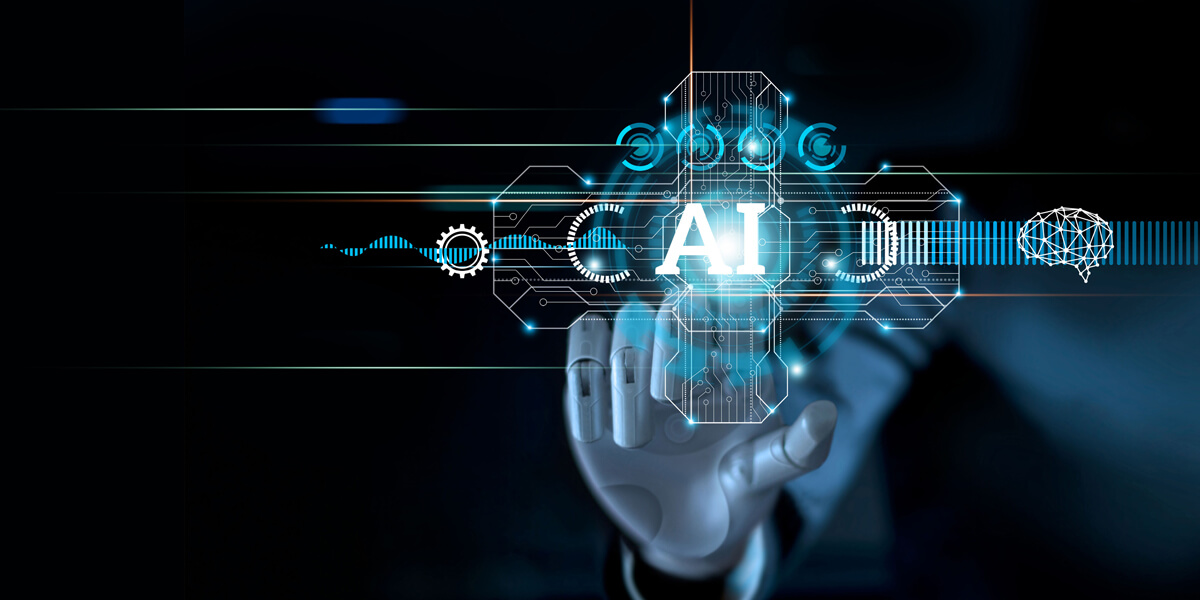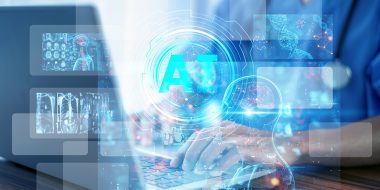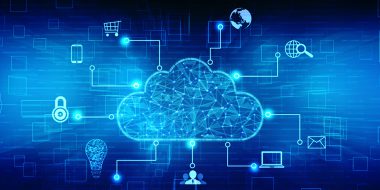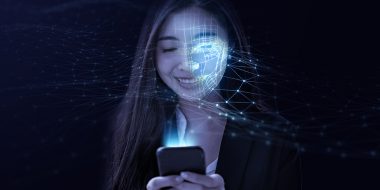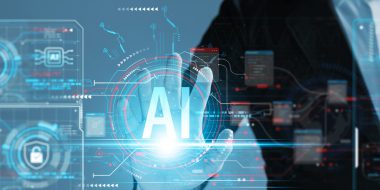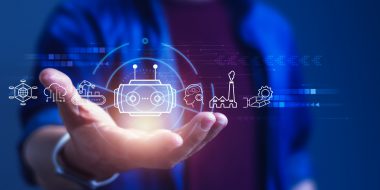What is AI and its introduction?
Artificial intelligence (AI), refers to the creation of intelligent machines that can perform tasks that typically require human intelligence, such as visual perception, speech recognition, decision-making, and language translation. These machines can be programmed to learn from experience, adjust to new data inputs, and perform complex tasks without being explicitly programmed to do so. AI has numerous applications across various sectors, including healthcare, finance, transportation, customer service, marketing, education, manufacturing, gaming, and others.
AI chatbot named ChatGPT (Chat Generative Pre-Trained Transformer) was created by OpenAI and released in November 2021. GPT-3.5 served as the foundation for ChatGPT’s initial release. On March 14, 2023, a version based on GPT-4, the most recent OpenAI model, was made accessible to premium subscribers temporarily. ChatGPT secured 100 Mn users globally in February 2023. By the end of the year 2024, OpenAI expects its revenue to increase to USD 1 Bn. With a training set of around 170 trillion parameters, GPT 4 is expected to be 500 times stronger than GPT 3, making it the most potent AI engine yet created.
Related reading: ChatGPT-4: A near to perfect AI-powered digital assistant
How will AI transform human work?
AI can augment human capabilities by providing real-time feedback and assistance. For example, in manufacturing, AI systems can help workers identify defects in products or optimize production processes to reduce waste. AI can provide personalized training and guidance to workers, helping them to develop new skills and improve their performance. This can help workers adapt to changing job requirements and stay competitive in the market. AI can provide data-driven insights and recommendations, helping workers make more informed decisions and identify areas for improvement. Overall, AI has the potential to transform many types of manual work, allowing one to focus on tasks that require human creativity, problem-solving, and decision-making.
Will AI take over the world?
Real-time applications and use cases of AI
- Photo-editing tool: Lensa AI ranks in the “Top Grossing Apps” ranking on the app store in the US, the UK, Germany, France, and Canada. Lensa took less than a week to go up from position 161 to 1 in the US, as shown in the accompanying chart. Lensa AI is a photo-editing tool employing AI to generate what it terms “magic avatars”.
- Text-to-video converter: Text-to-image AI is now widely used, but text-to-video is still in its infancy. With this technology, users may input a description and have a comparable video created in any style user like. Text-to-video converter is a web-based video editor with a focus on AI features like pose detection and background removal. Many companies offer Text-to-video converter tools Synthesia, Deepbrain AI, GliaCloud, and others.
- AI-based image recognition: AI image recognition technology is an application of deep learning. AI systems have surpassed us in many areas in their attempt to mimic the logic that underlies human thought, such as by being quicker, more alert, and better able to manage large amounts of data. Tech giants such as Google, Huawei, Amazon Web Services, Inc., and others offer AI-based image recognition tools.
- AI-based presentation: A program powered by AI can convert any text into visually beautiful slides, saving you countless hours of work. Numerous presentation styles and color pre-sets can be included within the program. Presentation software called Beautiful.ai is available to both people and corporations searching for advanced capabilities and customization options.
- Autonomous vehicles: Self-driving cars and other autonomous vehicles rely on AI for navigation, obstacle detection, and decision-making. The companies like Tesla Inc., Waymo, Nvidia, and many more are using AI in their autonomous vehicle offerings.
- Fraud detection: AI can be used to identify fraudulent transactions in real-time, using ML algorithms to detect patterns and anomalies in financial data. Signifyd, ClearSale offers AI-based fraud detection software.
The future capabilities and applications of AI
- Advanced healthcare: AI will play a significant role in improving healthcare by helping doctors to diagnose diseases, design treatment plans, and monitor patients.
- Autonomous vehicles: Self-driving cars are already on the road, and their number will only increase in the coming years. AI algorithms will help to improve the safety and efficiency of transportation systems, reducing traffic congestion, and improving the overall travel experience.
- Smart cities: AI will help cities to become more sustainable, efficient, and liveable. Smart traffic management systems, energy grids, and waste management systems will help to reduce carbon emissions and improve the quality of life for citizens.
- Robotics: Advances in AI will enable robots to perform a wider range of tasks, from simple household chores to complex manufacturing processes. Robots will become more intelligent, adaptable, and autonomous, with the potential to transform many industries.
How will AI change our life in future?
AI will continue to transform the human world in many ways. It will enable us to solve complex problems, improve our quality of life, and create new opportunities for innovation and growth.
How can AI help in the transformation of tasks in various industries?
AI is likely to lead to some job displacement in certain industries, it is also expected to create new job opportunities and enable workers to focus on tasks that require human creativity, problem-solving, and decision-making. Some of the potential use cases of AI in various industries are listed below:
- Marketing: With AI’s rapid development, it might soon be possible for online shoppers to purchase goods simply by taking a picture of them. Based on how viewers respond to films, Netflix offers incredibly accurate predictive technology. It looks at millions of data to make recommendations for shows and movies you might like based on users’ past behavior and cinema preferences.
- Banking: For customer service, anomaly detection, and credit card fraud detection, many banks have already implemented AI-based solutions. This is exemplified by HDFC Bank. The Electronic Virtual Assistant (EVA) chatbot was created by Bengaluru-based Senseforth AI Research for HDFC Bank.
- Finance: Financial institutions are using AI to enhance their stock trading performance and increase profit in the era of ultra-high-frequency trading. One of the top brokerage firms in Japan, Nomura Securities has been grudgingly working towards a single objective, namely using computers to analyze the stock traders’ insights.
- Healthcare: A lot of organizations and medical care centers are relying on AI. There are many examples of how AI in healthcare has helped patients all over the world. A clinical decision support system for stroke prevention was created by Cambio Health Care and can alert a doctor when a patient is at risk of having a heart attack.
- Lawyer: ChatGPT and related applications can help attorneys by generating papers like contracts or agreements, summarising case notes, and pertinent laws and legislation, and reducing the amount of time spent conducting research and typing up documents.
- Media (advertising, content creation, technical writing, journalism): ChatGPT and similar types of AI might have an impact on all media positions, including those in advertising, technical writing, journalism, and any position involving content creation. This is possible because AI is proficient at reading, writing, and comprehending text-based data, she continued.
- Copywriter: Businesses pay copywriters to produce material that is captivating and interesting to promote their products. However, the unique thought-providing capabilities of AI applications like ChatGPT-4 is presumably to come up with ads and slogans for them.
- Journalist: Although AI has made it possible to create more complex automated material, most seasoned journalists would shy away from utilizing it to complete stories and pieces in their entirety. As copywriters, if journalists don’t have fresh ideas of their own, their audiences will lose interest in what they are writing very quickly. AI can help tailor content to the interests of the audience using machine learning and computer vision.
- Computer programmer: Python, JavaScript, and C++ are just a few of the programming languages in which AI may generate code. It can also check for faults and errors in existing code or its code. Furthermore, ChatGPT has demonstrated the ability to pass certification exams, which would raise the bar for entry-level roles.
- Human resources: AI allows HR workers to develop job descriptions and automate repetitive operations like reporting on performance reviews, responding to inquiries from candidates, and producing onboarding materials for new hires.
- Customer services: AI, since it may be used to quickly power chatbots that are in charge of responding to incoming client inquiries. It enables agents and supervisors to automatically write answers to frequently requested queries and write emails in response to inquiries.
AI and its applications are expected to transform the world in many ways in the coming years. Overall, AI and its applications are expected to have a significant impact on many aspects of our lives in the coming years, and it will be important to carefully manage this impact to ensure that it benefits everyone. AI and its applications are expected to have a significant impact on jobs in the coming years. While AI has the potential to create new job opportunities in areas such as AI development, data analysis, and machine learning engineering. However, it is important to ensure that the benefits of AI are distributed fairly and that workers in affected industries are supported through retraining and other programs.
Gain insights into technology trends that are currently gaining ground in the markets with Netscribes’ market research solutions. To know more, contact us
Based on insights by Vaibhav Krishna D – Analyst, Market Research team, Netscribes

